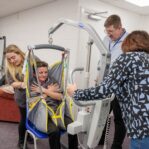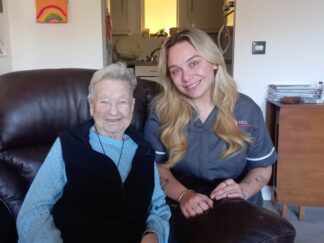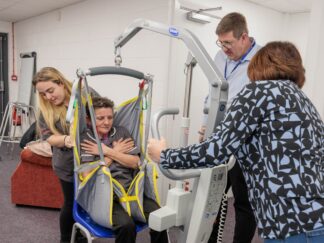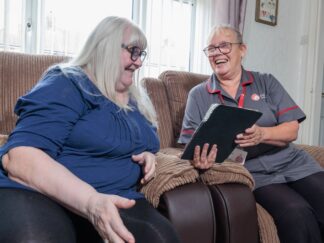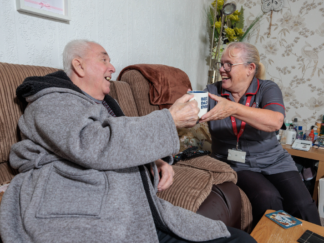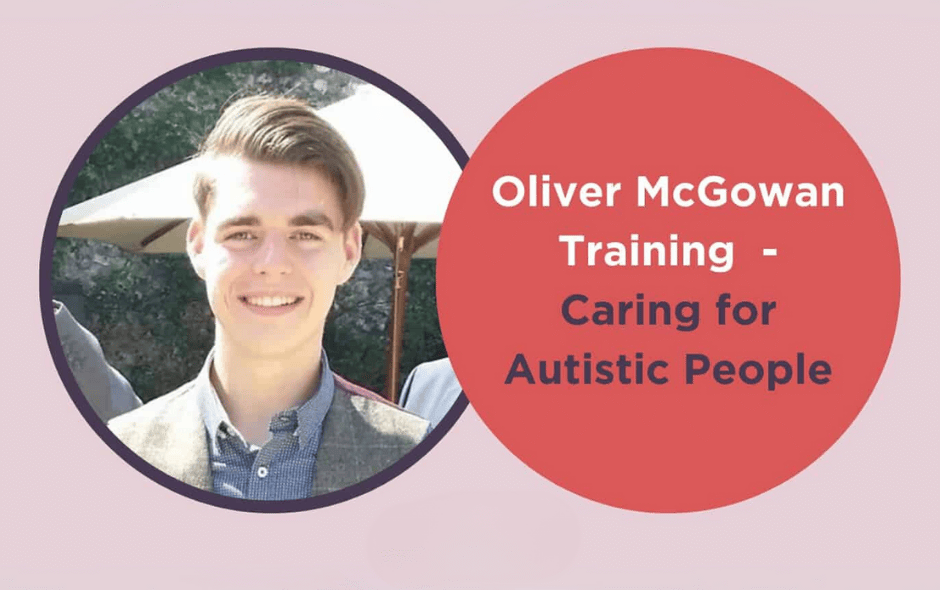
Here at Homecarers Care Services, we take pride in our training and ensuring that our care staff are knowledgeable on all aspects of care. One key learning module of our training includes Oliver McGowan training, which focuses on teaching our care staff to understand how to provide care to autistic people, and those with learning disabilities/difficulties.
A common misconception as a care company is that we only provide care to elderly individuals. However, this is not true – we care over 500 service users with a range of different needs and care plans, including autistic people and those with learning disabilities/difficulties.
So, it is essential that we provide Oliver McGowan training to ensure all of our care staff understand the different needs and requirements for autistic people.
So, what does this training involve?
The history of Oliver McGowan
The Oliver McGowan training was set in place to inform healthcare and social care staff and raise awareness about the mistreatment of autistic people. This training highlights how to provide care to those with learning disabilities/difficulties.
Oliver McGowan was an 18 year old from Bristol who was diagnosed with high-functioning autism, hemiplegia, focal partial epilepsy, and mild learning difficulties.
In October 2015, Oliver was admitted to a children’s hospital after suffering from partial focal seizures, meaning Oliver was left confused. As a result, Oliver was prescribed anti-depressants at the surprise of his parents. Eventually, the dosage was increased leading to increased seizures. Oliver was then admitted to hospital again, and was wrongly prescribed anti-psychotic medication multiple times on several occasions, which led to drastic effects and up to 30 seizures a day, along with a whole host of other negative effects. This was a result of doctor’s misunderstanding Oliver’s autistic behaviours.
Unfortunately, Oliver passed away on 11th November 2016 in intensive care after mistreatment and given anti-psychotic medication once again after being admitted to A&E with ill health, despite having no consent from Oliver or his immediate family members. It was also stated in his medical records that he suffers from adverse affects from anti-psychotic medication. As a result, Oliver unfortunately suffered from a rare side effect, causing his brain to swell and ultimately resulting in his death. After being given anti-psychotic medication on this occasion, Oliver’s health rapidly declined, and he was diagnosed with neuroleptic malignant syndrome.
This situation could have been completely avoidable, had his care team understood his needs and requirements.
So, as a result of this mistreatment, Oliver McGowan’s mother, took it upon herself to ensure that this training was essential for all individuals in the health and social care sector.
What is autism?
Autism is classified as a neurodevelopment disorder that results in a decrease of social developmental skills and often results in the presence of restrictive/repetitive behaviour. This condition was formerly known as Autism Spectrum Disorder (ASD) as Autism is often different for each individual, therefore Autism is referred to as a spectrum, which refers to the wide range of symptoms and severity each individual with the condition can have.
What is a learning difficulty/disability?
Learning disability
A learning disability is categorised as:
- significantly reduced ability to understand new or complex information and to learn new skills
- reduced ability to cope independently
- lasting effect on development
A learning disability also affects the individual across all aspects of their life.
Examples include:
- Down’s syndrome
- Williams syndrome
- Rett syndrome
- Prada-Willi syndrome
- Autism Spectrum Disorder
Learning difficulty
However, specific learning difficulties, which only affect a subset of skills, are not the same as a learning disability. This only affects one or more aspects of their life, but not all aspects of their life.
Examples of learning difficulties include:
- Dyslexia
- Dysphasia
- Dyscalculia
- Auditory processing disorder.
- Visual processing disorder.
How to provide effective care for autistic people and those with learning disabilities/difficulties
Ask/Listen/Do
Ask/Listen/Do is a scheme that was put in place for ensuring services are improved for children and adults who are diagnosed with autism, or other learning disabilities/difficulties.
Ask
This involves always trying to communicate with the patient/service user, even if they can not understand you or interpret what you are saying. This shows to the service user that you are actively trying to communicate with them. It is also good practice to ask their preferred method of communication.
You should also ask if their is a care plan, communication passport, or hospital passport, to better understand their needs and requirements if you are struggling to effectively communicate with the service user.
Additionally, you should also always focus on open questions as opposed to closed questions, so that the individual is able to tell you how they would like to receive care. Closed questions, such as ‘yes’ or ‘no’ questions, may result in poor delivery of care for the individual as they can not accurately explain their needs or requirements in further detail.
You could also ask if there is someone who would be helpful to talk to, such as a friend or family member, who understands their needs and would be able to effectively communicate this.
Finally, it is always important to only share information about the service user in certain circumstances, and to consider the individual’s capacity when sharing information.
Listen
It is important to listen at all times when a service user is communicating their needs and requirements, as this may already be difficult for the service user to do.
This may not necessarily include talking, but this may also include; body language, tone of voice, and behaviour. It is important to assess the way they are communicating, as well as what they are communicating.
It is also important to be patient with the service user, when they are trying to communicate. You should also always ensure the patient understands what you are trying to communicate. Again, this can be assessed by monitoring their tone of voice and body language.
Finally, when listening to the service user, be careful not to make assumptions or judgements.
Do
There are a few things that you should always do when communicating with an autistic person, or someone with learning difficulties/disabilities.
- Empower them – encourage them to make their own decisions.
- Treat the individual with respect – similarly to how you would like to be treated.
- Be respectful – take time to learn about their cultural needs and preferences.
- Don’t assume – don’t assume the individual can not understand you, or would like to receive care in a certain way.
- Make use of existing care plans – even if the care plan may need updating, there may be certain aspects you can take from an existing care plan and discuss this to make this easier for the individual.
- Promote independence for the service user.
- Think holistically – ensure you are considering all aspects of the individual’s quality of life, and consider this when discussing their needs.
Further Information
Oliver McGowan and autism
For further information regarding Oliver McGowan and his story, please visit his dedicated website here.
And for more information regarding autism, please visit the NHS website here.
Social Media
To keep up to date with important topics like this, please visit our ‘News’ page, or visit our socials by clicking the links below.
Liverpool
Cheshire
Our partners













